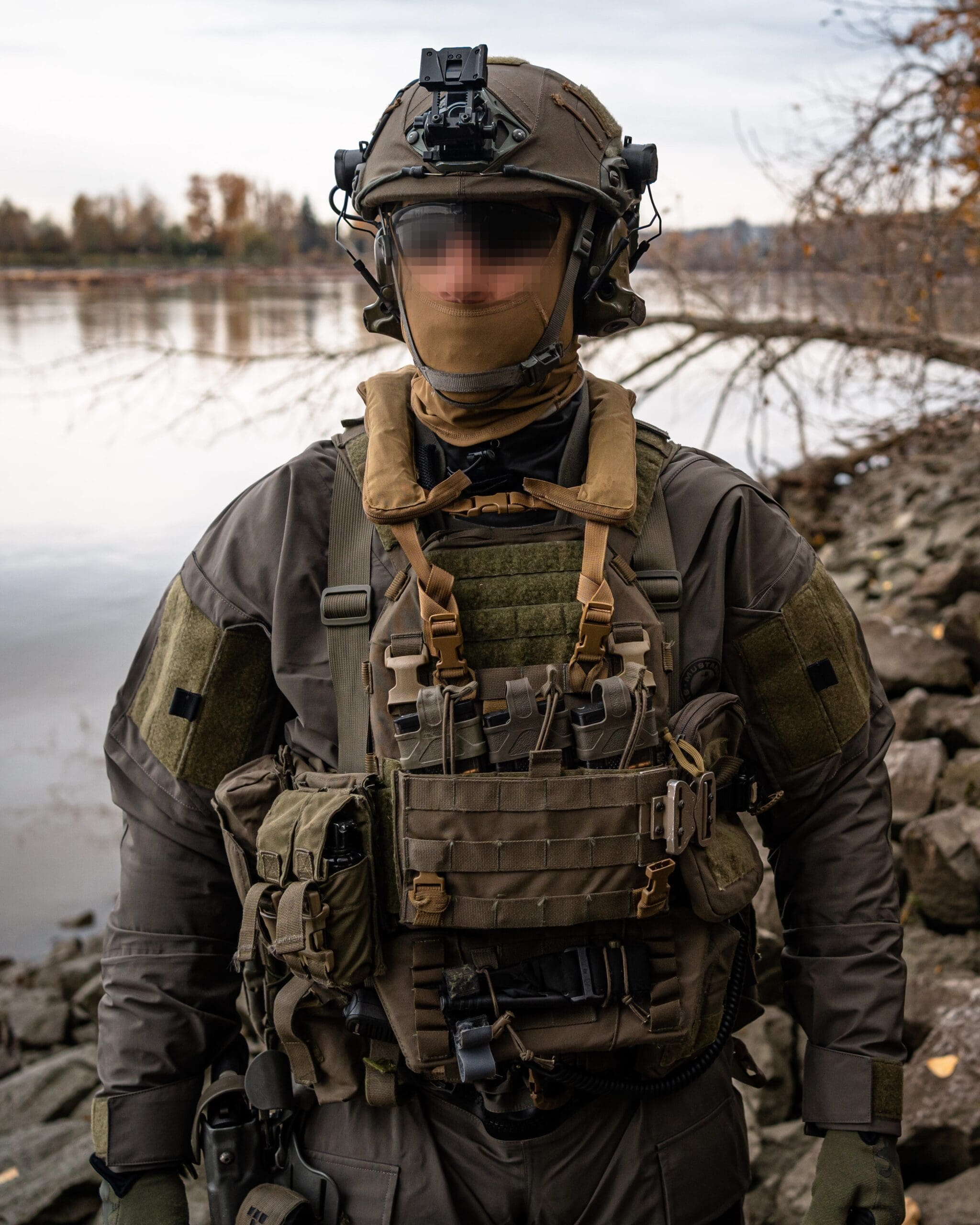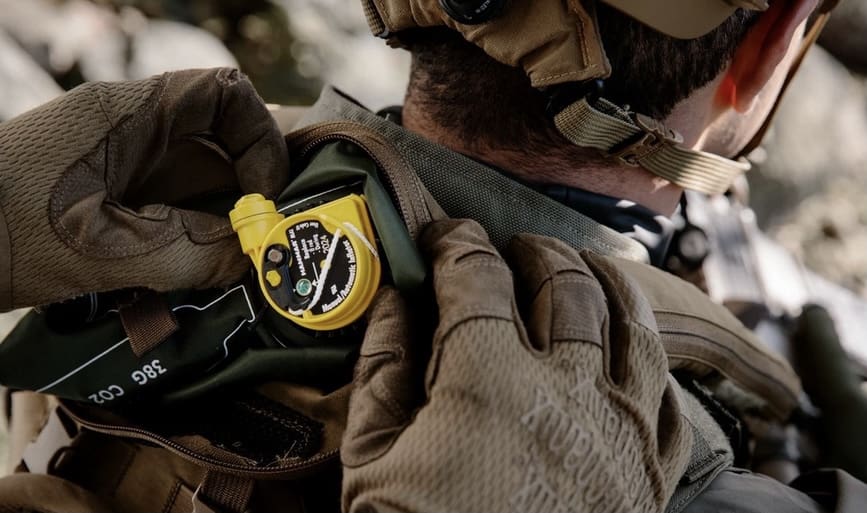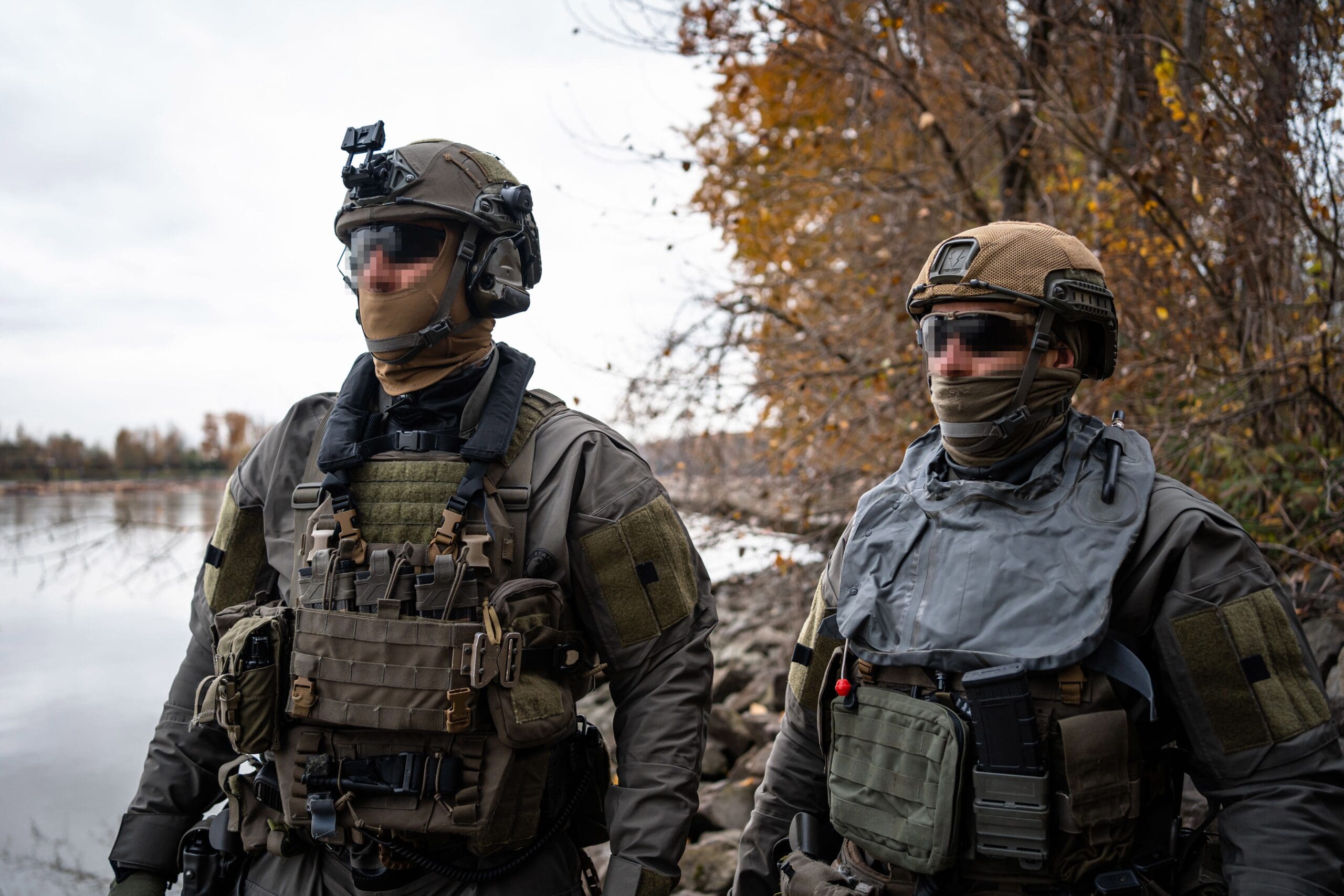
Mustang Survival’s RATIS is a Life Preserving Unit (LPU) for SOF operators. Due to its low bulk and weight, it can be attached directly to an armor vest, or worn with its own harness, depending on the application. Additionally, RATIS rights wearers into a face-up position while the system is inflated and offers a buoyancy to weight ratio 40:1.

But the biggest innovation is in the inflator. They use the Hammar COR Electronic Inflator; a single inflator that uses an electronic control unit to enable 4 inflation modes that respond to various depths and/or immersion times. Mustang Survival also introduced a new bladder material which is more pliable, and can be packed smaller, yet when inflated, is still large enough give the buoyancy required. Between the new inflator and bladder material, Mustang Survival changed the PFD game.

Above, you can compare the RATIS on the left to the old, tried and true UDT Vest. Sure, they’re currently used for different applications, but there was a time, not that long ago I might add, that the only solution was the UDT Vest. We’ve come a long way in reducing weight and bulk thanks to Mustang Survival.
Read the entire article at mustangsurvival.com/blogs/blog/inflatable-innovation


That guy is so operatorific, even when wearing dark sunglasses and a mask he needs his face pixelated.
They actually didn’t do any post process pixelating. Hes such an operator that his face is actually pixelated.
Mh: “Ratio 40:1” does not say anything about the lift it generates. How to compare against the 2 competitors?
Provides 40 pounds of buoyancy. Your gear doesn’t trade pound for pound in water, but it’s designed for the sweet spot for the current day SOF Maritime Assaulter loadout. Other designs provide more, such as the legacy Army Underarm ‘Cheesies’ which are about 35 lbs each for a total of 70 lbs.
That’s some nice production value in that ad video